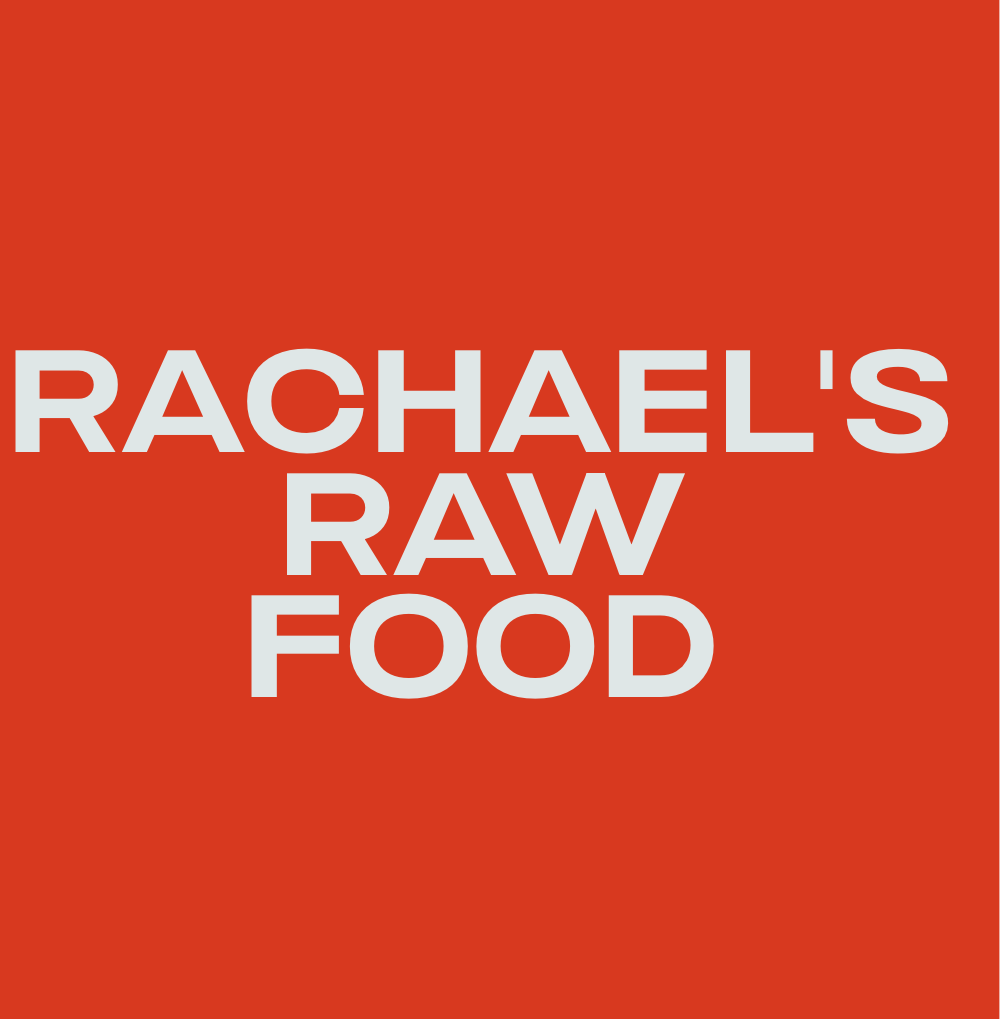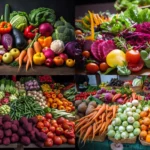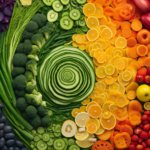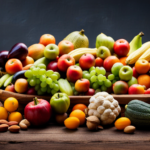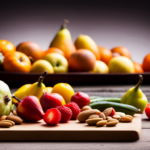Benefits of Raw Food
Raw Food Revolution: Uncovering the Top Benefits of a Raw Food Diet

As a dietitian, I continuously seek to understand the advantages of various diet plans. Lately, my focus has shifted to the possible health benefits offered by a raw food diet.
Eating raw food has become increasingly popular due to its purported health advantages and taste appeal. In this article, I will explore some of the potential benefits that may be associated with eating raw foods.
From improved digestive health to weight loss support, there are many reasons why people may choose to include more raw foods into their diet. Additionally, it’s important to understand how best to incorporate these items into your daily routine for optimal results.
Ultimately, understanding the nutritional value and preparation techniques can help you make informed choices when selecting which type of foods you should consume.
Improved Digestive Health
Eating a raw food diet has many benefits, the primary one being improved digestive health. The cleansing effects of consuming fresh fruits and vegetables can be incredibly powerful to our bodies.
Not only do they contain essential vitamins, minerals, antioxidants and fiber but eating them in their natural state helps reduce environmental impact as well.
Raw foods are full of enzymes that help break down nutrients for easier absorption into the body. This results in better nutrient uptake compared to when cooked or processed foods are consumed.
A raw food diet also encourages regular bowel movements, reducing inflammation and promoting healthy bacteria growth within the gut microbiome.
The addition of some lightly steamed veggies is also beneficial, particularly if you’re looking to increase your intake of certain vitamins such as folate and carotenoids like beta-carotene – both important for overall wellness.
As we transition into discussing increased nutrient absorption, it’s helpful to know how adding more raw produce into meals can result in greater nutritional benefit.
Increased Nutrient Absorption
Have you ever wondered why raw foods are so important for your health? Eating a diet with more raw food has countless benefits, and one of the most important is that it increases nutrient absorption.
When we eat fewer processed foods and more natural, unprocessed ones, our bodies become better nourished and healthier overall.
Raw food is naturally higher in nutrient density than processed or cooked food because less processing means there’s no heat exposure to destroy vital vitamins and minerals. This makes them an excellent source of essential nutrients like antioxidants, fiber, fatty acids, and proteins.
High levels of these compounds lead to improved physical performance as well as enhanced mental wellbeing, which can be especially beneficial for those who are active or looking to stay healthy.
The digestive system also works harder when consuming raw food due to its high fiber content; this helps promote regularity while aiding in weight management by keeping us feeling fuller longer.
Raw fruits and vegetables provide the body with many other health benefits such as increased energy levels, lower risk of disease, improved immune function, decreased inflammation, and better skin health – all without compromising taste!
Eating a diet rich in raw foods provides numerous advantages over cooked offerings – not only do they contain significantly higher amounts of key nutrients but they also help support weight loss efforts through their filling properties.
With so much riding on what we consume every day, incorporating more raw options into our diets is simply too good an opportunity to pass up.
Weight Loss Support
Eating raw foods can be an effective way to support weight loss. A balanced diet of fresh fruits, vegetables, and lean protein is the foundation for any successful nutrition plan. This approach provides your body with the nutrients it needs while controlling portion sizes and calories.
Eating a variety of whole foods in their natural state helps you avoid processed ingredients that are usually laden with added sugars and unhealthy fats. The dietary balance achieved by consuming raw food also plays an important role in helping achieve your desired weight loss goals.
By taking advantage of nutrient-rich fruit and vegetable options, you’re getting essential vitamins, minerals, antioxidants, and fiber – all necessary components for healthy living. Incorporating these items into meals or snacks will help control hunger levels throughout the day so cravings don’t derail your progress.
Maintaining portion control is key when trying to lose weight on a raw food diet. It’s easy to overindulge without realizing how much you have eaten until it’s too late! To prevent this from happening, plan out meals ahead of time using smaller plates as a visual cue and weighing or measuring portions if needed.
Keeping track of what goes into each dish ensures that every meal adheres to calorie guidelines set forth by your individualized plan. By following these simple steps with a focus on dietary balance and portion control, eating raw can promote sustainable weight loss without sacrificing flavor or satisfaction along the way.
With reduced risk of foodborne illness lurking around the corner due to improper handling or storage techniques, adding more uncooked dishes to your menu may just be worth considering after all!
Reduced Risk Of Foodborne Illness
I’m sure you’re aware of the risks of foodborne illness, so let’s talk about how eating raw foods can help reduce those risks.
Proper food handling and preparation is key to avoiding contamination of your food, so keep that in mind when preparing raw foods.
Eating raw foods can also help you avoid any chemicals or preservatives that can be added to processed foods, which can also be a risk factor.
I’m here to help you make the best choices to ensure that your meals are both delicious and safe.
Food Safety
As a nutritionist, I’m always stressing the importance of food safety.
When it comes to consuming raw foods, there are some extra precautions that should be taken in order to reduce the risk of foodborne illness.
One major benefit of eating raw foods is that you’re conserving resources like water and energy which would otherwise be used for processing cooked meals.
Raw diets also promote animal welfare since they don’t require animals to be slaughtered or farmed for their meat.
Eating raw foods can help ensure that your diet consists of fresh, unprocessed ingredients – making sure you get the most out of each meal nutritionally!
Plus, by following proper food handling guidelines, you’ll minimize any potential health risks associated with eating raw foods.
Contamination Prevention
Contamination prevention is key when it comes to reducing the risk of foodborne illness. As a nutritionist, I always stress the importance of following dietary guidelines and adhering to proper food safety standards.
It’s important to remember that raw foods can be contaminated with bacteria or other dangerous substances in much the same way as cooked meals, so you should take extra care when handling any type of raw ingredient. This means washing your hands before and after preparing raw ingredients and thoroughly cleaning surfaces where you’re going to prepare them.
Additionally, make sure you store all raw items in sealed containers or bags at appropriate temperatures – this helps minimize contamination from airborne particles like dust and pollen. Taking these steps ensures that you’re doing everything possible to reduce the risk of becoming ill from consuming raw foods!
Lower Cholesterol Levels
Eating raw foods is like a breath of fresh air to your body. It’s an easy way to get all the necessary nutrients and vitamins while avoiding processed ingredients. Eating a diet rich in raw food can have many positive effects on our bodies, including lower cholesterol levels.
When it comes to lowering cholesterol, plant-based diets are particularly beneficial – with no animal products or saturated fats involved, they are low in unhealthy cholesterol and high in fiber. This type of dietary lifestyle has been proven to reduce bad (LDL) cholesterol levels naturally without relying on medications.
The environmental impact should also be considered when looking at plant-based diets; since there is no meat or dairy consumption, fewer resources are required for production, leading to less pollution and deforestation.
With healthier eating habits come better health outcomes overall. A balanced diet centered around unprocessed whole foods can help regulate blood sugar levels as well as improve digestion and metabolism processes within the body.
As a nutritionist/dietitian, I recommend that everyone incorporate more raw foods into their daily routines – not only will you see improved results in terms of cholesterol but other areas too!
To further explore these benefits, let us take a closer look at how raw food consumption can lead to improved blood sugar regulation.
Improved Blood Sugar Regulation
Eating a raw food diet can have tremendous benefits for your blood sugar control.
Dietary choices that are low in processed carbohydrates, high in fiber, and rich in vitamins and minerals help to regulate the body’s production of insulin which is essential for healthy blood sugar regulation.
Raw foods such as fresh fruits and vegetables, nuts and seeds, sprouts, legumes, and unprocessed grains provide all these nutrients without added sugars or unhealthy fats found in highly-processed products.

By eating more raw foods you can also reduce inflammation throughout the body which may contribute to impaired glucose metabolism.
A diet rich in anti-inflammatory components like omega 3 fatty acids from sources including flaxseeds, chia seeds, walnuts and hemp hearts can improve overall health while helping with regulating blood sugar levels.
In addition, there are many herbs and spices such as turmeric, garlic, oregano and ginger that contain powerful natural antioxidants that may further assist with controlling chronic inflammation associated with diabetes.
Making dietary changes towards consuming more whole foods on a daily basis has shown to be one of the most efficient ways to naturally support healthier blood sugar levels over time.
Not only will it help stabilize hormones involved with weight management but it can also lead to improved energy levels due to increased nutrient absorption from real food sources.
Increased Energy Levels
Eating raw foods can help to increase your energy levels because they are more nutrient dense than cooked foods.
Raw foods contain all their vitamins, minerals, and enzymes, which are essential for the body to absorb the nutrients and use them for energy.
Eating raw foods also helps with digestion, as the body doesn’t have to work as hard to break down the food.
Plus, the enzymes in raw foods further aid digestion, which means your body will be able to absorb the nutrients much faster.
All in all, eating raw foods is a great way to give your energy levels an extra boost.
Nutrient Dense
It’s no surprise that raw foods can give you a boost in energy!
Raw and minimally processed plant-based foods have higher bioavailability of nutrients, meaning they are more easily digested and absorbed by your body.
Eating these nutrient dense foods deliver essential vitamins and minerals to your cells faster than cooked or heavily processed food which can make all the difference when it comes to feeling energized throughout the day.
An added benefit of eating raw is that it typically increases your fiber intake as well.
This helps slow down digestion so that you don’t experience sudden sugar crashes after meals like you might with sugary snacks or refined carbs.
By consuming enough fresh fruits, vegetables, nuts and seeds every day, you’ll be sure to notice an increase in sustained energy levels – without sacrificing taste!
Nutrient Absorption
When you eat a diet rich in raw and minimally processed foods, your body is able to better absorb the nutrients due to their higher bioavailability. This means that your body can take advantage of all the vitamins and minerals from these foods more quickly than it would with cooked or heavily processed food.
By getting deeper nutrition from real, whole ingredients, you’ll be giving yourself an energy boost! Even if you’re eating nutrient dense foods, however, absorption becomes even more important as it affects how much of those nutrients your body actually retains.
Eating enough fiber helps slow down digestion so that essential nutrients are absorbed properly throughout the day for sustained energy levels – no sugar crashes here!
Digestion
Digestion is an important part of the process when it comes to increased energy levels.
By eating a fiber-rich diet and taking time to chew your food, you’re helping your body properly break down what you eat so that essential nutrients are absorbed correctly throughout the day.
Not only will this keep your energy levels consistent but it can also help with deeper cleansing by leaving less bloating behind!
Eating slowly and consciously allows for more mindful meals which results in better digestion overall.
In turn, your body is able to take advantage of all the nutrition provided from each bite without worrying about any sugar crashes later on – making sure that you have enough fuel for whatever activity lies ahead!
Improved Skin Health
Did you know that over 66% of all adults in the United States are considered overweight or obese? Eating a raw food diet may help reduce cravings, promote weight loss, and improve overall health. It’s no wonder why more and more people are turning to this way of eating for its potential benefits!
When it comes to skin health, there are many advantages associated with following a raw food diet. Foods like fruits and vegetables provide healthy minerals and antioxidants which can protect your skin from cellular damage caused by toxins.
Consuming fewer cooked foods can also mean reduced intake of toxic chemicals that have often been linked to chronic inflammation and other diseases. Raw diets can be incredibly beneficial when it comes to keeping our bodies healthy – including our skin!
By consuming nutrient-rich whole foods, we’re able to get essential vitamins, minerals, fiber, and phytonutrients without any added preservatives or processed ingredients. Not only will these nutrients nourish your body from within; they’ll also leave you feeling satisfied for longer periods of time so you don’t experience those pesky mid-day cravings as often.
With improved nutrition comes better protection against oxidative stress on the skin cells and an increased ability to fight free radicals in the environment. These positive effects on the skin can lead to an overall healthier complexion with fewer wrinkles and blemishes – something everyone should strive for!
As we move forward into improving mental clarity through natural means such as mindfulness practices or herbal supplements, it’s important to remember that nutrition is key for optimal wellbeing at every level: physical, mental, emotional and spiritual.
Improved Mental Clarity
It’s no secret that eating a whole food, plant-based diet has numerous benefits for your skin health. But what about the effect of raw foods on mental clarity? Raw foods are chock full of nutrients and antioxidants that can help you achieve greater clarity and focus in life! Let me explain how:
- Eating raw fruits and vegetables provides our bodies with essential vitamins and minerals needed to support brain function – providing us with clearer focus over time.
- Consuming leafy greens such as spinach or kale helps provide balanced Omega 3 fatty acids, which is linked to improved memory retention.
- Incorporating plenty of nuts, seeds, legumes and grains into your meals allows your body to absorb more zinc – an important micronutrient known to reduce stress levels and improve moods.
- Raw food also contains high amounts of magnesium – an invaluable mineral particularly helpful for restoring mental balance when we experience anxiety or depression.
Making a shift towards consuming more raw foods doesn’t have to be daunting! Start small by adding some chopped veggies like cucumbers or celery onto salads or smoothies each day then slowly increase from there until it becomes part of your regular routine.
You’ll soon notice the positive effects on both your physical AND mental wellbeing! Plus, following this dietary pattern will likely result in decreased risk of heart disease too – something I’m sure everyone would love to hear!
Decreased Risk Of Heart Disease
Eating raw foods has many health benefits that can help promote a longer, healthier life. One of the most important is its ability to reduce risk of heart disease.
A diet rich in nutritious fruits and vegetables helps lower blood pressure, cholesterol levels and homocysteine levels – all key factors for reducing the chance of heart problems. Furthermore, consuming more raw foods may also reduce stress which is another significant contributor to long-term cardiovascular wellbeing.
A study published by The British Medical Journal found those who consumed 5 or more servings per day of fruits and veggies had a 20% reduced risk of stroke compared to those who ate less than 3 portions each day, showing the undeniable power of nutrition when it comes to keeping our hearts healthy.
Eating whole plant-based foods with little processing also helps reduce inflammation caused by oxidative damage from free radicals, an element linked to chronic illnesses such as cancer, diabetes and arthritis.
Raw diets are often higher in essential vitamins and minerals like magnesium, potassium, zinc and folate – all components that support good overall health. For example eating plenty of dark leafy greens provides us with calcium which prevents bone loss over time while Vitamin C present in citrus fruits boosts immunity against infection.
With so many benefits associated with incorporating raw food into our daily routine it’s no surprise why these types of meals have become increasingly popular among people looking for better ways to manage their physical health. Moving on we will look at how going raw can improve digestion…
Reduced Inflammation
The importance of a healthy heart cannot be understated, and one way to support it is through the consumption of raw foods. Eating fresh fruits and vegetables can have powerful benefits for your cardiovascular health; however, that’s not all that you get from this diet!
Raw food also has many other advantages such as reduced inflammation. Inflammation in the body can occur due to stress or poor dietary choices. By eating raw food, particularly those with anti-inflammatory properties like nuts, seeds and leafy greens, we are able to reduce chronic inflammation and bolster our immune system.
Furthermore, by reducing stress levels through mindful eating practices we can further improve immunity by taking care of our mental wellbeing. The combination of improved nutrition and relaxation helps us take better control over our overall health.
Raw foods offer an exciting culinary experience too! Not only do they provide essential nutrients but they also deliver delicious flavor profiles that will tantalize the taste buds while providing beneficial vitamins and minerals. With so much goodness packed into each bite, there’s no wonder why more people are making the switch to raw diets – if you haven’t already done so then now may just be the perfect time to start!
Better Taste
I’m a big believer in the benefits of raw food!
Eating fresh, unprocessed food preserves the natural flavor and nutrients.
This results in intensely flavorful meals that really tantalize the taste buds.
Plus, you get all the health benefits of eating fresh, so it’s a win-win!
Freshness
When it comes to eating raw food, freshness is key! That’s why organic sourcing when eating a raw diet can make all the difference.
Not only does this help ensure that you’re getting the most out of your nutrients, but it also helps reduce environmental impacts from shipping and packaging. Plus, freshly sourced foods taste better than ever!
There’s nothing quite like biting into a juicy piece of ripe fruit or crunching on crisp vegetables with vibrant colors. Eating local produce won’t just give you access to higher quality ingredients—it’ll also bring more flavor to your plate.
It’s an easy way to add excitement to meals without sacrificing nutrition. So skip the processed meal kits and start exploring your local farmers market for fresh finds instead!
Intense Flavors
Eating local produce not only increases the quality of your food, but it also boosts the flavor!
Local foods tend to have a lot more intense and complex flavors compared to processed goods.
Plus, with locally sourced ingredients you’ll get access to rich textures and vibrant colors that are sure to add excitement and complexity to all your meals.
So forget about those boring meal kits—you can create something special for yourself by shopping at your local farmers market instead!
You won’t regret it when you experience the deliciousness of fresh-picked fruits and veggies in each bite.
Easier Preparation
Eating raw food comes with a number of benefits, one of which is easier preparation.
Not only does eating raw simplify meal planning and better manage time in the kitchen, but it also offers several advantages that make prepping meals simpler than ever before.
To start, streamlining meal planning can be achieved through shopping for ingredients in their natural state – without any added preservatives or processing. This allows you to create healthy dishes that are suitable for your family’s needs quickly and easily. Additionally, buying produce from local farmers markets ensures freshness and quality while cutting down on costs too.
Better time management is another benefit of preparing raw foods since they require fewer steps compared to cooked recipes. For example, there’s no need to wait for water to boil or heat up oil when making salads, wraps or smoothies – all you have to do is chop some vegetables and combine them with other ingredients like nuts, seeds or fruits!
Plus, the clean-up process takes less energy as well because there are usually just utensils and cutting boards involved instead of pots and pans. This makes cooking much faster so you don’t have to spend hours in the kitchen every day; freeing up more time for activities such as exercising or catching up on important tasks at work.
Ultimately, this allows everyone to enjoy delicious meals each day while keeping things simple and stress free too!
Improved Food Storage
In addition to easier preparation, raw food has major benefits when it comes to storage. Eating a diet that includes uncooked foods can lead to cost savings on groceries and reduce the environmental impact of cooking meals.
The most obvious benefit is that there are fewer ingredients involved in preparing a meal from scratch. This reduces costs associated with buying pre-packaged items or eating out, which often require more energy for production and transportation than fresh produce does.
Moreover, avoiding processed goods means less packaging waste going into landfills or being recycled. Eating raw also eliminates the need for electricity or gas used in heating up cooked foods, further reducing your carbon footprint.
Additionally, since you won’t be using any cookware that needs scrubbing down afterwards you can save water as well as time cleaning up after meals – making it an all round more sustainable option.
Raw food recipes provide an easy way to make delicious dishes while still having a positive effect on the environment.
More Sustainable Food Options
Oh, the humanity! Everywhere you turn people are talking about raw food and its many benefits. I guess we should have seen it coming; after all, if a trend can be made out of eating kale for breakfast then why not try to make something out of eating only raw food?
But really, let’s take a step back here and consider some other sustainable options when it comes to diet:
- Plant-based diets: Eating more plants is one easy way to reduce your environmental impact while still getting plenty of nutrition from fresh fruits and vegetables.
- Seasonal eating: Not only does seasonal produce taste better, but shopping seasonally helps support local farms as well as reducing the energy required for shipping produce long distances.
- Home cooking: Cooking meals at home with whole ingredients means fewer processed foods in our lives – which translates into healthier bodies and less waste going into landfills.
- Minimize meat consumption: Reducing or eliminating animal products from our diets reduces water usage, air pollution, and deforestation associated with livestock production.
As a nutritionist/dietitian, I encourage my clients to explore these alternatives before jumping on the raw food bandwagon – there’s no need to go extreme when making small changes can add up over time!
So next time you’re looking for ways to eat healthy without sacrificing flavor or planet Earth, think outside the box (or shall I say blender) and check out some of these sustainable food options first!
Frequently Asked Questions
Is Raw Food Suitable For People With Food Allergies?
When it comes to people with food allergies, raw food can be a bit tricky.
Food labeling is essential when buying or preparing raw ingredients in order to ensure that there are no allergens present.
Additionally, because the health implications of consuming certain raw foods can vary greatly from person-to-person, anyone with known food allergies should consult their doctor before introducing any new types of raw foods into their diet.
Are There Any Risks Associated With Eating A Raw Food Diet?
‘As the saying goes ‘you are what you eat’, and that’s especially true when it comes to raw food diets.
While there are some benefits, such as cost implications and a more nutritional balance, there can also be risks associated with this type of diet.
Eating too much unprocessed or uncooked food could lead to an unhealthy lifestyle by not providing enough essential vitamins and minerals your body needs.
Additionally, if someone has compromised immune system due to any medical condition then eating raw foods may increase their risk for bacterial infections.’
Are There Any Special Cooking Techniques Required For Preparing Raw Food?
Yes, there are certain cooking techniques that you will want to be aware of if you’re preparing raw food.
It is important to source ingredients locally and organically whenever possible in order to reduce your environmental impact.
Additionally, some special kitchen equipment might come in handy when making meals with uncooked foods – think blenders, dehydrators, spiralizers and mandolins!
Finally, it’s always a good idea to do your research before attempting any new recipes so that the nutritional value of these dishes can be maximized.
Are There Any Special Considerations For Pregnant Women Or Children Eating A Raw Food Diet?
Yes, there are special considerations for pregnant women or children eating a raw food diet.
Food safety is important to consider when consuming any type of food, and this applies to raw foods as well. A nutritionist/dietitian can help guide you in selecting nutrient-rich sources of produce that have been properly handled and stored.
Additionally, unpasteurized dairy products should be avoided due to the risk of bacteria; pasteurization destroys harmful bacteria while preserving beneficial nutrients. It’s important to note that some fruits and vegetables may contain parasites which must be destroyed by cooking or freezing before consumption.
With careful attention to detail, it’s possible for pregnant women and children alike to safely enjoy the benefits of a raw food diet!
How Much Of My Daily Diet Should Be Raw Food?
When it comes to meal planning and achieving a nutritional balance, many people wonder how much of their daily diet should be raw food.
Generally speaking, there is no one-size-fits-all answer as everyone’s dietary needs are different.
However, the general recommendation is that 20-30% of your diet should come from minimally processed plant foods like fruits and vegetables for optimal health benefits.
In addition to eating plenty of fresh produce, incorporating more cooked whole grains can help you meet your daily nutrient requirements.
Conclusion
Eating a raw food diet can have numerous benefits, from providing essential nutrients to aiding digestion.
The key is to understand the safety considerations and make sure that you are taking necessary precautions when preparing or eating your meals.
With careful consideration for allergies, special needs, and portion sizes, anyone can enjoy this healthy lifestyle choice with confidence!
After all, if you’re looking for an easy way to get back in touch with nature – and your body’s natural rhythms – it doesn’t get much easier than going raw.
So why not give it a try?
You’ll be surprised at how quickly you feel connected to your new dietary routine – like two peas in a pod!
Penelope, a talented writer for rachaelsrawfood.com, brings a unique perspective and a wealth of knowledge to the platform. With her exceptional writing skills and deep understanding of nutrition, she plays an integral role in conveying the benefits of raw food to a wide audience.
One of Penelope’s strengths lies in her ability to simplify complex concepts and make them accessible to a wide audience. She understands that not everyone has prior knowledge of raw food or nutrition, so she breaks down information in a way that is easy to understand without sacrificing accuracy. Her writing perfectly balances educational and engaging, allowing readers to grasp the concepts while enjoying the reading experience.
In addition to her writing contributions, Penelope actively collaborates with Rachael, the Editor in Chief, and the rest of the team at rachaelsrawfood.com. She participates in brainstorming sessions, offering creative ideas for new articles, recipes, and projects. Her passion for research ensures that the website’s content is current and evidence-based, providing readers with reliable information to support their raw food journey.
Benefits of Raw Food
Raw Bistro Dehydrated Food, How Much Will It Make?

Are you on the hunt for the ideal food for your beloved furry friend? Search no more, as Raw Bistro’s dehydrated food is here to satisfy their palate, offering a gastronomic experience that will make your pet’s taste buds rejoice.
Like a symphony of flavors, this premium pet food is carefully crafted to provide optimal nutrition and satisfaction. Imagine the aroma of tender, real ingredients gently dehydrating to preserve their natural goodness. With Raw Bistro’s dehydrated food, you can rest assured that only the finest quality ingredients are used, ensuring a meal that is both wholesome and delicious.
But how much will it make? That’s a question on every pet owner’s mind. Don’t worry, we’ve got you covered. In this article, we will delve into the portion control guidelines of Raw Bistro’s dehydrated food, helping you understand exactly how much to serve your furry friend.
So, get ready to embark on a culinary journey that will nourish your pet’s body and soul, leaving them begging for more.
Key Takeaways
- Raw Bistro’s dehydrated food can make approximately 4 cups of food when rehydrated.
- The food offers convenience as it can be ready in minutes by adding water and letting it rehydrate.
- Portion control guidelines are provided to help pet owners serve the right amount.
- The meals are made from natural ingredients and free from artificial additives and fillers.
The Benefits of Raw Bistro’s Dehydrated Food
You’ll love the incredible benefits of Raw Bistro’s dehydrated food, making it the perfect choice for a healthy and convenient meal option. When it comes to feeding yourself and your loved ones, it’s important to prioritize nutrition without sacrificing taste or convenience. That’s where Raw Bistro’s dehydrated food comes in.
One of the biggest advantages of Raw Bistro’s dehydrated food is its nutritional value. By gently dehydrating the ingredients, the food retains its natural vitamins, minerals, and enzymes. This means that you and your family can enjoy a meal that’s not only delicious but also packed with essential nutrients.
Another key advantage is the convenience it offers. With Raw Bistro’s dehydrated food, you can have a wholesome meal ready in minutes. Simply add water, let it rehydrate, and enjoy. This makes it perfect for those busy days when you don’t have time to cook from scratch.
Additionally, Raw Bistro’s dehydrated food is made from high-quality ingredients sourced from trusted suppliers. Every bite’s a testament to their commitment to providing you with the best possible meal options.
The importance of Raw Bistro’s dehydrated food can’t be overstated. Its nutritional value, convenience, and commitment to quality make it an excellent choice for those seeking a healthy and convenient meal option. Try it today and experience the many benefits for yourself!
Understanding the Ingredients in Raw Bistro’s Dehydrated Food
Get to know the ingredients in Raw Bistro’s dehydrated food and discover the key components that make it so nourishing. Understanding the ingredients is essential to fully grasp the benefits of this dehydrated food.
Here are three vital components that contribute to its nutritional value:
-
High-Quality Proteins: Raw Bistro’s dehydrated food is packed with premium proteins like organic chicken, grass-fed beef, and wild-caught fish. These proteins are essential for building and repairing muscles, supporting a healthy immune system, and promoting overall well-being.
-
Wholesome Fruits and Vegetables: The dehydrated food is enriched with a variety of fruits and vegetables, such as organic pumpkin, spinach, and blueberries. These plant-based ingredients provide essential vitamins, minerals, and antioxidants that support optimal health and vitality.
-
Healthy Fats: Raw Bistro’s dehydrated food contains nourishing fats like organic coconut oil and sunflower oil. These healthy fats are a great source of energy and aid in nutrient absorption, promoting a shiny coat and healthy skin.
By incorporating these high-quality proteins, wholesome fruits and vegetables, and healthy fats, Raw Bistro’s dehydrated food ensures that your pet receives a balanced and nutritious diet. Understanding the ingredients is the first step towards providing your furry friend with the benefits of this dehydrated food. Trust in Raw Bistro’s expertise and experience in crafting nourishing meals for your pet’s well-being.
Nutritional Value of Raw Bistro’s Dehydrated Food
Indulging in Raw Bistro’s dehydrated meals guarantees a nourishing feast that delivers exceptional nutritional value.
When it comes to dehydrated food, there are several benefits that make it a great choice for your diet. First and foremost, dehydrated food retains a higher percentage of its original nutrients compared to other forms of food processing. This means that you can enjoy the full nutritional benefits of the ingredients used in Raw Bistro’s dehydrated food.
Raw Bistro takes great care in selecting high-quality ingredients for their meals. They conduct thorough ingredient analysis to ensure that only the best and most nutritious components make it into their products. This attention to detail ensures that you are getting the maximum nutritional value from each bite.
By choosing dehydrated food from Raw Bistro, you can feel confident that you are nourishing your body with wholesome ingredients that have been carefully selected and analyzed.
Whether you’re looking to provide a balanced meal for your pet or seeking a convenient and nutritious option for yourself, Raw Bistro’s dehydrated food is an excellent choice. Trust in their expertise and experience in creating meals that offer exceptional nutritional value.
How to Prepare Raw Bistro’s Dehydrated Food for Your Pet
Preparing Raw Bistro’s dehydrated meals for your pet is a simple process that involves rehydrating the ingredients with water and allowing them to soak for a short period of time, ensuring that your furry friend receives a nourishing and easily digestible meal. Here’s how you can prepare Raw Bistro’s dehydrated food for your pet:
-
Start by measuring the appropriate amount of dehydrated food based on your pet’s weight and activity level. The feeding guidelines can be found on the packaging or on Raw Bistro’s website.
-
Add the measured amount of dehydrated food to a bowl.
-
Slowly pour warm water over the food, making sure to cover all the ingredients. The water should be at a ratio of 1 part food to 2 parts water.
-
Let the food soak for about 5 minutes, allowing it to rehydrate and soften.
-
After the soaking time, stir the mixture to ensure that the food is evenly hydrated.
-
Serve the rehydrated food to your pet in a clean bowl.
-
Any uneaten food can be refrigerated for up to 48 hours.
By following these simple steps, you can provide your pet with a delicious and nutritious meal that’s easy to prepare. Remember to always follow the feeding guidelines to ensure that your pet gets the right amount of food for their specific needs.
Portion Control: How Much Should You Feed Your Pet?
Ensure your pet maintains a healthy weight by carefully measuring their portions and feeding them the appropriate amount of nourishing meals.
Portion control is essential to prevent overfeeding and to meet your pet’s nutritional needs. Feeding your pet the right amount of food is crucial for their overall well-being.
To determine the appropriate portion size for your pet, consider their age, weight, and activity level. The packaging of Raw Bistro’s dehydrated food provides guidelines on how much to feed based on your pet’s weight. It’s important to note that these measurements are general recommendations, and you may need to adjust the portion size based on your pet’s individual needs.
Establishing a feeding schedule is also important. Regular meal times help regulate your pet’s digestion and prevent them from grazing throughout the day. Stick to a consistent schedule and avoid leaving food out all day, as this can lead to overeating and potential health risks such as obesity and digestive issues.
When measuring your pet’s food, use a measuring cup or scale to ensure accuracy. Avoid relying on estimation, as it can result in either overfeeding or underfeeding. By following these portion control guidelines and maintaining a feeding schedule, you can help your pet maintain a healthy weight and minimize the risk of health problems associated with improper feeding.
Tips for Transitioning Your Pet to Raw Bistro’s Dehydrated Food
Transitioning your pet to Raw Bistro’s dehydrated meals can be a seamless process with these helpful tips. It’s important to remember that every pet is unique, so the transition may take some time and patience. Follow these guidelines to ensure a successful switch to Raw Bistro’s nutritious meals.
First, start by gradually introducing the dehydrated food into your pet’s current diet. Mix a small amount of Raw Bistro’s food with their regular food, gradually increasing the ratio over a period of 7-10 days. This slow transition will allow your pet’s digestive system to adjust to the new diet without any discomfort.
Second, monitor your pet’s appetite and adjust the portion size accordingly. Use the feeding guidelines provided on the packaging as a starting point, but be mindful of your pet’s individual needs. Factors such as age, weight, and activity level should be taken into consideration when determining the appropriate portion size.
To assist you further, here is a table that outlines the recommended daily feeding amounts based on your pet’s weight:
| Weight of Pet (lbs) | Daily Feeding Amount (cups) |
|---|---|
| 5-15 | 1/4 – 3/4 |
| 16-30 | 3/4 – 1 1/2 |
| 31-50 | 1 1/2 – 2 1/2 |
Remember to always provide fresh water and consult with your veterinarian if you have any concerns or questions during the transition process. With these transitioning tips and feeding guidelines, you can ensure that your pet enjoys a smooth switch to Raw Bistro’s dehydrated meals while reaping the benefits of a wholesome diet.
Storage and Shelf Life of Raw Bistro’s Dehydrated Food
Storing Raw Bistro’s dehydrated meals properly will extend their shelf life and maintain their nutritional value. When it comes to long-term storage, it’s important to follow a few guidelines.
First, make sure to keep the food in a cool and dry place. Avoid exposing it to direct sunlight or high temperatures, as this can degrade the quality of the food over time.
Secondly, proper packaging is key. Raw Bistro’s dehydrated meals come in resealable bags, which are designed to keep out moisture and air. After opening a bag, be sure to seal it tightly to prevent any moisture from getting in.
If you want to store the food for an extended period, consider transferring it to an airtight container for added protection. This will help preserve the flavors and nutritional content for even longer.
By following these storage tips, you can ensure that your Raw Bistro’s dehydrated meals stay fresh and delicious for as long as possible. Trust in our experience and knowledge to keep your pet’s food at its best.
Comparing the Cost of Raw Bistro’s Dehydrated Food to Traditional Options
When comparing the cost of Raw Bistro’s dehydrated meals to traditional options, have you considered the long-term savings and nutritional benefits they provide? Not only are Raw Bistro’s dehydrated meals a cost-effective option, but they also offer a wide range of nutritional benefits that can greatly improve your overall health.
Let’s take a closer look at the cost comparison and nutritional analysis:
-
Cost Comparison:
-
Raw Bistro’s dehydrated meals may have a higher upfront cost compared to traditional options, but they offer significant long-term savings. With traditional options, you may end up spending more on groceries, dining out, and wasted food. On the other hand, Raw Bistro’s dehydrated meals are portioned perfectly, reducing food waste and saving you money in the long run.
-
Additionally, when you factor in the time and effort saved from meal planning, grocery shopping, and cooking, the convenience of Raw Bistro’s dehydrated meals becomes evident.
-
Nutritional Analysis:
-
Raw Bistro’s dehydrated meals are made from high-quality, natural ingredients that retain their nutritional value through the gentle dehydration process. This means you’re getting all the essential nutrients, vitamins, and minerals your body needs to thrive.
-
Moreover, Raw Bistro’s dehydrated meals are free from artificial additives, preservatives, and fillers commonly found in traditional options. This ensures that you’re fueling your body with clean, wholesome food.
When comparing the cost of Raw Bistro’s dehydrated meals to traditional options, it’s important to consider the long-term savings and nutritional benefits they offer. By investing in Raw Bistro’s dehydrated meals, you’re not only saving money but also nourishing your body with wholesome, nutrient-dense food.
Customer Reviews and Feedback on Raw Bistro’s Dehydrated Food
Customer reviews and feedback on Raw Bistro’s dehydrated meals indicate high satisfaction with the taste, quality, and convenience of the product. Customers consistently express their satisfaction with the delicious flavors and quality ingredients used in these meals. Many customers appreciate that Raw Bistro’s dehydrated food is made with human-grade, organic ingredients, ensuring a high standard of quality.
The convenience of these meals is also highlighted, with customers praising the ease of preparation and the ability to enjoy a nutritious meal on the go. Customers often mention that Raw Bistro’s dehydrated meals have exceeded their expectations in terms of taste and texture. They appreciate that the meals retain the natural flavors of the ingredients and have a satisfying texture, even after being rehydrated.
The fact that the meals are dehydrated also means that they have a longer shelf life, which customers find convenient for stocking up and minimizing food waste. Overall, the positive customer reviews and feedback on Raw Bistro’s dehydrated food highlight the high level of customer satisfaction and product quality. Customers trust Raw Bistro to deliver delicious, nutritious, and convenient meals that meet their dietary needs.
If you’re looking for a dehydrated food option that offers great taste, quality ingredients, and convenience, Raw Bistro’s dehydrated meals come highly recommended by satisfied customers.
Frequently Asked Questions (FAQs) about Raw Bistro’s Dehydrated Food
Looking for answers to your burning questions about Raw Bistro’s dehydrated meals? We’ve got you covered with these frequently asked questions!
-
How much food does one package of Raw Bistro’s dehydrated food make?
-
Each package of Raw Bistro’s dehydrated food makes approximately 4 cups of food when rehydrated. This is equivalent to about 16 servings, making it a great option for both single meals and multiple servings.
-
What are the benefits of Raw Bistro’s dehydrated food?
-
Raw Bistro’s dehydrated food offers several benefits. Firstly, it’s made with high-quality, human-grade ingredients that are sourced locally whenever possible. Secondly, the dehydration process helps retain the natural nutrients and flavors of the ingredients, ensuring that your pet receives a wholesome and delicious meal. Lastly, the compact and lightweight nature of the dehydrated food makes it convenient for travel and storage.
-
Are there any drawbacks to using Raw Bistro’s dehydrated food?
-
While Raw Bistro’s dehydrated food offers numerous benefits, it’s important to note that it requires rehydration before feeding to your pet. This may take some time and planning, especially if you’re in a rush. Additionally, some pet owners may find the cost of dehydrated food to be higher compared to traditional kibble or canned food options. However, the added benefits and quality of ingredients make it a worthwhile investment for your pet’s health and well-being.
Raw Bistro’s dehydrated food provides a convenient and nutritious option for your pet’s meals. While it may require some extra preparation and incur a slightly higher cost, the benefits of high-quality ingredients and retained nutrients make it a great choice for pet owners looking to provide the best for their furry friends.
Frequently Asked Questions
Can I feed Raw Bistro’s Dehydrated Food to my cat/dog with specific dietary restrictions?
If your furry friend is on a vegetarian diet, you can feed them raw bistro’s dehydrated food. It’s a great option that provides all the necessary nutrients and proteins without compromising their dietary restrictions. Additionally, this food can work wonders for pets with sensitive stomachs. Its natural ingredients and gentle preparation process make it easily digestible, reducing the chances of any digestive issues. Trust raw bistro’s dehydrated food to keep your pet healthy and happy.
How long does it take to rehydrate Raw Bistro’s Dehydrated Food?
The rehydration time for raw bistro’s dehydrated food is typically quick, allowing you to serve a nutritious meal to your cat or dog in no time. By following the instructions provided, you can expect the food to absorb water and regain its original texture within a matter of minutes.
This not only ensures convenience but also preserves the nutritional benefits of the food, providing your pet with a balanced and healthy diet.
Can I mix Raw Bistro’s Dehydrated Food with other types of pet food?
Of course, you can mix raw bistro’s dehydrated food with other types of pet food. It’s a fantastic idea, really. By combining different flavors and textures, you’ll surely keep your furry friend entertained.
But let’s not forget the nutritional benefits! Dehydrated food is packed with vitamins and minerals that are essential for your pet’s health. Just remember to practice portion control, especially for small pets, to ensure a well-balanced diet.
Is Raw Bistro’s Dehydrated Food suitable for pets with allergies?
Raw Bistro’s dehydrated food is highly suitable for pets with allergies. It’s specifically formulated to address the needs of pets with sensitive stomachs, providing them with a balanced and easily digestible diet.
Additionally, this food offers numerous benefits for pets with skin allergies. The high-quality ingredients and gentle dehydration process help to minimize potential allergens and support healthy skin and coat.
Trust Raw Bistro to provide your pet with the nutrition they need to thrive.
What is the recommended age for pets to start eating Raw Bistro’s Dehydrated Food?
They say, "It’s never too early or too late to start something new." When it comes to feeding your furry friend, the recommended age to start them on raw bistro’s dehydrated food is as early as possible.
This wholesome and nutrient-rich diet offers numerous benefits, such as improved digestion, healthier skin and coat, and increased energy levels. Trust the expertise and experience of raw bistro to provide your pet with the best start in life.
What is the Nutritional Content of Raw Bistro Dehydrated Food Compared to Primal Raw Food?
Raw Bistro dehydrated food has a higher nutritional content compared to Primal raw food, particularly in the calcium content. While both are beneficial for pets, the primal raw food calcium content may not be as sufficient as that of Raw Bistro dehydrated food.
Conclusion
In conclusion, Raw Bistro’s dehydrated food offers numerous benefits for your pet’s health and well-being. It provides a convenient and nutritious option for your furry friend, with carefully selected ingredients and a high nutritional value. By following the simple preparation instructions and practicing portion control, you can ensure that your pet receives the right amount of food.
Additionally, the storage and shelf life of Raw Bistro’s dehydrated food make it a practical choice. So why settle for traditional options when you can give your pet the best? Try Raw Bistro’s dehydrated food today and see the difference it can make in your pet’s life.
Penelope, a talented writer for rachaelsrawfood.com, brings a unique perspective and a wealth of knowledge to the platform. With her exceptional writing skills and deep understanding of nutrition, she plays an integral role in conveying the benefits of raw food to a wide audience.
One of Penelope’s strengths lies in her ability to simplify complex concepts and make them accessible to a wide audience. She understands that not everyone has prior knowledge of raw food or nutrition, so she breaks down information in a way that is easy to understand without sacrificing accuracy. Her writing perfectly balances educational and engaging, allowing readers to grasp the concepts while enjoying the reading experience.
In addition to her writing contributions, Penelope actively collaborates with Rachael, the Editor in Chief, and the rest of the team at rachaelsrawfood.com. She participates in brainstorming sessions, offering creative ideas for new articles, recipes, and projects. Her passion for research ensures that the website’s content is current and evidence-based, providing readers with reliable information to support their raw food journey.
Benefits of Raw Food
Raw Boy, How Doesn’t The Food Go Bad?
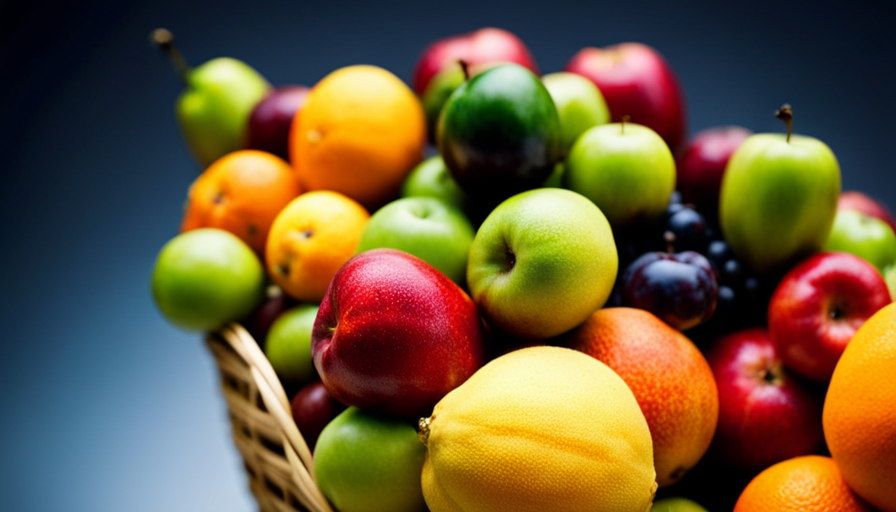
In the realm of preserving food, the fight against time is ever-present. It resembles a meticulous ballet, where the quest to maintain the freshness and safety of food is a complex choreography demanding a nuanced grasp of the foundational science.
Enter raw boy, the unsung hero behind the scenes. Have you ever wondered how raw food manages to stay edible without spoiling? It’s a fascinating phenomenon, and the answer lies in the power of enzymes, natural antioxidants, low temperature storage, moisture content, protective skin, oxygen exposure prevention, proper handling, and packaging techniques.
This article will take you on a journey through the intricate web of food preservation, exploring the various methods and techniques that keep raw food from going bad. So, grab a seat and prepare to be amazed by the wonders of raw boy and the magic behind keeping food fresh and delicious.
Key Takeaways
- Enzymes in raw food prevent bacterial growth and spoilage.
- Natural antioxidants in raw food inhibit oxidation and maintain freshness.
- Low temperature storage of raw food preserves nutritional value, slows enzyme activity, inhibits microbial growth, and maintains texture and flavor.
- Proper handling and packaging techniques, such as vacuum sealing and refrigeration, can prevent spoilage and maximize the shelf life of raw food.
The Role of Enzymes in Raw Food Preservation
Raw food preservation relies heavily on the activity of enzymes, which help to slow down the spoilage process. Enzymes are proteins that act as catalysts in biochemical reactions. They play a crucial role in preserving raw food by facilitating enzymatic reactions that prevent the growth of bacteria and other microorganisms.
Enzymes function by breaking down complex molecules into simpler forms. For example, enzymes called proteases break down proteins into amino acids, while lipases break down fats into fatty acids and glycerol. By breaking down these macromolecules, enzymes prevent the growth of bacteria, which require these nutrients for survival.
Enzymatic reactions also help to slow down the spoilage process by inhibiting the activity of enzymes that promote food spoilage. For instance, enzymes like polyphenol oxidase and peroxidase are responsible for the browning of fruits and vegetables. By inhibiting the activity of these enzymes, raw food can be preserved for longer periods.
In addition to their role in preventing spoilage, enzymes also contribute to the texture and flavor of raw food. For example, enzymes like amylase and pectinase help to soften fruits and vegetables, making them more palatable.
Enzymes play a vital role in raw food preservation by facilitating enzymatic reactions that prevent the growth of bacteria and inhibit the activity of spoilage-promoting enzymes. Understanding these enzyme functions is crucial for preserving the quality and safety of raw food.
Natural Antioxidants and their Preservation Effects
How do natural antioxidants help preserve food and maintain its freshness?
Natural antioxidants play a crucial role in preserving food and preventing spoilage. Unlike synthetic antioxidants, which are artificially created and added to food, natural antioxidants are derived from plants and have been used for centuries to extend the shelf life of various food products.
These antioxidants work by inhibiting the oxidation process, which is the main cause of food deterioration. Processing techniques can significantly impact the antioxidant content in food. High-temperature processing methods, such as boiling or frying, can lead to the loss of natural antioxidants due to their sensitivity to heat. On the other hand, gentle processing techniques like freeze-drying or minimal processing help retain the antioxidant activity in food.
Studies have shown that natural antioxidants not only preserve the freshness of food but also offer additional health benefits. They have been found to neutralize harmful free radicals in the body, which can contribute to various chronic diseases. By incorporating natural antioxidants into our diets through the consumption of fresh fruits, vegetables, and whole grains, we can help protect our bodies from oxidative stress and promote overall well-being.
Natural antioxidants are essential in food preservation as they effectively inhibit oxidation and maintain the freshness of food. The impact of processing techniques on antioxidant content underscores the importance of choosing gentle processing methods to retain the beneficial properties of these antioxidants. Incorporating natural antioxidants into our diet can not only extend the shelf life of food but also contribute to our overall health.
Low Temperature Storage and Its Impact on Raw Food
By utilizing low temperature storage methods, you can prolong the freshness and quality of your perishable produce. Low temperature storage offers numerous benefits for preserving raw food, ensuring that it stays safe to consume for a longer period.
-
Preserving Nutritional Value: Low temperature storage helps retain the nutritional value of raw food. It slows down the rate of nutrient degradation, preserving essential vitamins and minerals that are often lost during food processing or prolonged exposure to higher temperatures.
-
Slowing Down Enzyme Activity: Enzymes play a crucial role in the ripening and deterioration of fruits and vegetables. Cold temperatures inhibit enzyme activity, slowing down the natural decay process and extending the shelf life of raw food.
-
Inhibiting Microbial Growth: Low temperatures create an unfavorable environment for bacteria, yeasts, and molds to grow. Storing raw food at low temperatures can effectively inhibit microbial growth, reducing the risk of foodborne illnesses and increasing the overall safety of the food.
-
Maintaining Texture and Flavor: Cold temperatures help maintain the texture and flavor of raw food. By slowing down chemical reactions responsible for texture degradation and flavor changes, low temperature storage ensures that your produce remains crisp, juicy, and flavorful.
Low temperature storage is a highly effective raw food preservation technique. By utilizing this method, you can extend the shelf life of your perishable produce while preserving its nutritional value, inhibiting microbial growth, and maintaining its texture and flavor.
Moisture Content and Preservation Techniques
Moisture content is the key ingredient that keeps our food fresh and succulent, like a refreshing summer rain that rejuvenates and revitalizes. When it comes to preserving raw food, moisture control plays a crucial role.
Too much moisture can lead to the growth of bacteria and mold, while too little moisture can result in food drying out and losing its taste and texture.
There are various alternative preservation methods that help maintain the perfect moisture balance in raw food. Dehydration is one such technique, where the moisture is removed from the food, preventing bacterial growth and spoilage. This method is commonly used for preserving fruits, vegetables, and meats.
Another effective method is canning, which involves sealing food in airtight containers. This process not only prevents moisture from entering but also creates a vacuum that inhibits the growth of spoilage-causing microorganisms. Canning is commonly used for preserving jams, pickles, and sauces.
Additionally, freezing is a popular preservation technique that relies on low temperatures to control moisture. By freezing raw food, the moisture content is locked in, preserving the flavor and texture of the food. Freezing is commonly used for preserving meats, seafood, and prepared meals.
Moisture control is essential for preserving raw food. Alternative preservation methods such as dehydration, canning, and freezing help maintain the perfect moisture balance, ensuring that our food stays fresh and delicious for longer.
So, next time you savor a juicy piece of raw food, remember the importance of moisture content and the various preservation techniques that keep it from going bad.
Protective Skin and Outer Layers
Preserving the integrity of our produce, the protective skin and outer layers act as a shield, safeguarding the delicate flavors and nutrients within. These natural barriers play a crucial role in preventing spoilage and extending the shelf life of fruits and vegetables. They are composed of protective coatings that serve as a defense mechanism against external threats such as moisture loss, microbial contamination, and physical damage.
The protective coatings found on the surface of produce vary in thickness, texture, and composition depending on the type of fruit or vegetable. For example, apples have a waxy layer called the cuticle, while oranges have a thick, porous skin. These coatings help to regulate the exchange of gases, such as oxygen and carbon dioxide, which are essential for maintaining the freshness and quality of the produce.
To illustrate the importance of protective coatings, consider the following table:
| Fruit/Vegetable | Protective Coating | Function |
|---|---|---|
| Apples | Cuticle | Prevents moisture loss |
| Grapes | Bloom | Acts as a natural barrier against pathogens |
| Tomatoes | Epicuticular wax | Reduces water loss |
The protective skin and outer layers of fruits and vegetables serve as a vital defense mechanism, ensuring that the food remains fresh and nutritious for longer periods. By understanding and appreciating these natural barriers, we can make informed choices in storing and preserving our raw produce.
Microbial Activity and Raw Food Preservation
Now let’s delve into the fascinating world of microbial activity and raw food preservation. You might wonder how raw food manages to stay edible without any artificial preservatives. Well, it all comes down to the intricate balance between microbial growth and enzymatic reactions.
Microbes are tiny microorganisms that exist everywhere, including on the surface of raw food. Some of these microbes are beneficial, while others can cause food spoilage or even make you sick. However, the growth of these microbes can be controlled through various mechanisms.
One way is by manipulating the environmental conditions. For instance, keeping raw food at low temperatures can slow down microbial growth, which is why refrigeration is commonly used for food preservation. Similarly, drying food removes moisture, making it difficult for microbes to survive and multiply.
Another method involves inhibiting microbial growth through natural antimicrobial compounds present in certain foods. For example, some fruits and vegetables contain organic acids and essential oils that have antimicrobial properties, preventing the growth of harmful microorganisms.
Enzymatic reactions also play a crucial role in raw food preservation. These reactions can break down complex molecules, such as proteins and carbohydrates, into simpler forms, making it harder for microbes to utilize them as a food source.
Raw food can stay fresh and safe to eat due to the delicate balance between microbial growth and enzymatic reactions. By controlling environmental conditions and utilizing natural antimicrobial compounds, we can enjoy the benefits of raw food without worrying about spoilage or foodborne illnesses.
- Refrigeration: Slows down microbial growth.
- Drying: Removes moisture, inhibiting microbial survival and multiplication.
- Natural antimicrobial compounds: Found in certain fruits and vegetables, preventing the growth of harmful microorganisms.
- Enzymatic reactions: Break down complex molecules, making it harder for microbes to utilize them.
Oxygen Exposure and Spoilage Prevention
By carefully sealing raw food in airtight containers, you can shield it from the relentless grasp of oxygen, ensuring its longevity and preventing the onset of spoilage. Oxygen exposure plays a critical role in food spoilage, as it promotes the growth of spoilage-causing microorganisms and accelerates the breakdown of nutrients through enzymatic activity. However, by limiting oxygen availability, you can effectively prevent these detrimental processes.
Spoilage prevention can also be achieved through the presence of natural antioxidants in raw food. These antioxidants help to neutralize harmful free radicals that can lead to spoilage. Low temperature storage is another effective method for extending the shelf life of raw food. By keeping the food at a cool temperature, microbial activity is slowed down, reducing the risk of spoilage. Additionally, maintaining a proper moisture content and storing food in protective skin, such as fruits and vegetables, can further prevent spoilage.
Proper handling and storage techniques, such as avoiding cross-contamination and maintaining cleanliness, are crucial in preventing spoilage. Packaging techniques, such as vacuum sealing and modified atmosphere packaging, can also be employed to limit oxygen exposure and extend the shelf life of raw food. Refrigeration and freezing are common methods used to preserve raw food, as low temperatures inhibit microbial growth and enzymatic activity.
By understanding the role of oxygen exposure in spoilage and implementing proper handling, storage, and packaging techniques, you can effectively prevent the spoilage of raw food and extend its shelf life.
The Importance of Proper Handling and Storage
To ensure your ingredients stay fresh and delicious, it’s crucial to handle and store them properly. Proper handling and storage play a significant role in preventing food spoilage and maintaining food safety.
Here are three key tips to follow:
-
Wash your hands: Before handling any food, make sure to wash your hands thoroughly with soap and warm water. This helps remove any bacteria or germs that can contaminate your ingredients.
-
Separate raw and cooked foods: To avoid cross-contamination, it’s essential to keep raw and cooked foods separate. Store them in separate containers and use separate utensils to prevent the transfer of harmful bacteria.
-
Store at the right temperature: Different foods require different storage temperatures. Keep perishable items like meats and dairy products in the refrigerator at or below 40°F (4°C). Dry goods, such as grains and canned goods, can be stored at room temperature in a cool, dry place.
By following these proper handling and storage practices, you can extend the shelf life of your ingredients and reduce the risk of foodborne illnesses. Taking these simple steps will help ensure that your food stays fresh and safe for consumption.
Packaging Techniques for Raw Food Preservation
Ensure your ingredients stay fresh and delicious by learning effective packaging techniques for preserving raw foods. Two popular methods for preserving raw food are vacuum sealing and dehydration techniques.
Vacuum sealing is a fantastic way to extend the shelf life of raw food. By removing the air from the packaging, you create a barrier that prevents the growth of bacteria and other microorganisms. This technique is especially useful for meats and seafood, as it helps to maintain their quality and flavor. When vacuum sealing, make sure to remove any excess moisture from the food, as it can lead to spoilage.
Dehydration is another effective method for preserving raw food. By removing the water content, you inhibit the growth of bacteria and mold. Dehydrating fruits and vegetables not only extends their shelf life but also concentrates their flavors, making them perfect for snacking or adding to recipes. To dehydrate raw food, use a food dehydrator or an oven set to a low temperature.
Remember, proper packaging is crucial for preserving raw food. Both vacuum sealing and dehydration techniques can help you keep your ingredients fresh for longer periods. So, next time you’re storing raw food, give these methods a try and taste the difference in quality and flavor.
Extending Shelf Life through Refrigeration and Freezing
Now that we’ve discussed different packaging techniques for preserving raw food, let’s dive into the next method: extending shelf life through refrigeration and freezing. By using low temperature techniques, you can ensure that your food stays fresh for longer periods of time.
-
Preservation of Nutrients: Freezing raw food helps to retain its nutritional value. Low temperatures slow down the natural degradation process, preserving essential vitamins and minerals that can be lost during other preservation methods.
-
Prevention of Bacterial Growth: Refrigeration and freezing inhibit the growth of bacteria, which are the main culprits behind food spoilage. These low temperature techniques create an environment where bacteria cannot thrive, keeping your food safe to consume.
-
Versatile Preservation: Freezing allows you to preserve a wide variety of raw foods, from fruits and vegetables to meats and seafood. You can freeze these items individually or in combination, providing you with flexibility in meal planning and reducing food waste.
By employing refrigeration and freezing, you can extend the shelf life of your raw food items, minimizing food waste and maximizing their nutritional value. So, next time you’re wondering how to keep your food from going bad, remember the benefits of low temperature techniques.
Frequently Asked Questions
What are the benefits of raw food preservation using enzymes?
Preserving food using enzymes offers numerous benefits. Enzymes act like tiny soldiers, diligently working to break down harmful bacteria and prevent spoilage. They enhance the food’s flavor, texture, and nutritional value, all while extending its shelf life. By harnessing the power of enzymes, you can enjoy the natural goodness of raw food while keeping it safe to eat. So, indulge in the benefits of enzyme preservation and savor fresh, healthy meals for longer.
How do natural antioxidants contribute to the preservation of raw food?
Natural antioxidants play a crucial role in the preservation of raw food. They help to neutralize free radicals, which are responsible for food spoilage. By inhibiting the oxidation process, natural antioxidants prevent the degradation of essential nutrients and maintain the food’s quality and freshness.
Various preservation techniques, such as vacuum packaging or refrigeration, can be used in conjunction with natural antioxidants to further extend the shelf life of raw food.
Can low-temperature storage negatively impact the nutritional value of raw food?
Low-temperature storage can indeed have a negative impact on the nutritional value of raw food. Studies have shown that prolonged storage at low temperatures can lead to nutrient loss, particularly for heat-sensitive vitamins like vitamin C and B vitamins.
Additionally, cooking food can also cause some nutrient loss, but the extent depends on the cooking method. Overall, raw food generally retains more nutrients compared to cooked food, making it a healthier option in terms of nutritional value.
What preservation techniques can be used to maintain the moisture content of raw food?
To maintain the moisture content of raw food, various techniques can be used. Enzymatic preservation involves using enzymes to slow down the degradation process. Methods like vacuum packaging, which removes air and prevents moisture loss, can help preserve the moisture content. Other techniques include canning, freezing, and using moisture-retaining additives. These preservation methods can help prolong the shelf life of raw food and maintain its moisture content.
How does the protective skin and outer layers of raw food contribute to its preservation?
The protective mechanisms of the skin and outer layers of raw food play a crucial role in preventing microbial growth and preserving its freshness. These layers act as a physical barrier, hindering the entry of microorganisms into the food.
Additionally, they contain antimicrobial compounds that further inhibit microbial growth. This helps to extend the shelf life of raw food and maintain its quality.
Can Adding Raw Egg to Food Increase the Risk of Spoilage and Food-Borne Illness?
Adding raw egg protein to food can increase the risk of spoilage and food-borne illness. It’s important to handle and cook raw egg protein properly to minimize the risk of salmonella and other infections. Always use pasteurized eggs in recipes that call for raw eggs to reduce the risk.
Conclusion
Congratulations! You’ve now learned the secrets to keeping your raw food fresh and delicious for longer. By understanding the role of enzymes, utilizing natural antioxidants, and employing low temperature storage, you can prevent spoilage and maintain the nutritional value of your food.
Remember to handle and store your food properly, protect it from oxygen exposure, and use effective packaging techniques.
Finally, refrigeration and freezing are excellent methods for extending the shelf life of your raw food.
So go ahead, enjoy your fresh and wholesome meals with peace of mind!
Penelope, a talented writer for rachaelsrawfood.com, brings a unique perspective and a wealth of knowledge to the platform. With her exceptional writing skills and deep understanding of nutrition, she plays an integral role in conveying the benefits of raw food to a wide audience.
One of Penelope’s strengths lies in her ability to simplify complex concepts and make them accessible to a wide audience. She understands that not everyone has prior knowledge of raw food or nutrition, so she breaks down information in a way that is easy to understand without sacrificing accuracy. Her writing perfectly balances educational and engaging, allowing readers to grasp the concepts while enjoying the reading experience.
In addition to her writing contributions, Penelope actively collaborates with Rachael, the Editor in Chief, and the rest of the team at rachaelsrawfood.com. She participates in brainstorming sessions, offering creative ideas for new articles, recipes, and projects. Her passion for research ensures that the website’s content is current and evidence-based, providing readers with reliable information to support their raw food journey.
Benefits of Raw Food
What Color Food Service Gloves Must Be Worn When Handling Raw Chicken

Interestingly, just the other day, while I was in the midst of making a tasty chicken recipe in my kitchen, I found myself pondering the appropriate glove color for maintaining food hygiene. Dealing with raw chicken with the highest level of care is critical to avoid the transmission of dangerous bacteria and contaminants that might cause illnesses related to food. The use of gloves is a key protocol within the culinary industry, but the query remains: what color gloves are suitable for this task?
In this article, we will delve into the importance of food safety when handling raw chicken and why wearing the right colored gloves is crucial. We will also explore the color-coding system for gloves and discuss other factors to consider in food handling. By the end, you will have a clear understanding of the best practices in wearing gloves while handling raw chicken and the importance of compliance with health and safety regulations.
Let’s dive in and prioritize food safety in raw chicken handling!
Key Takeaways
- Wearing gloves when handling raw chicken is crucial for food safety and to prevent the spread of harmful bacteria.
- The recommended color for food service gloves when handling raw chicken is blue.
- Cross-contamination occurs when bacteria from raw chicken comes into contact with other surfaces or foods.
- Compliance with regulations is important, as many require food handlers to wear gloves when working with raw chicken.
The Importance of Food Safety in Handling Raw Chicken
You must always wear the correct color food service gloves when handling raw chicken to ensure the highest level of food safety. Hand hygiene is of utmost importance in food handling, especially when dealing with raw chicken. Proper handwashing techniques, such as using warm water and soap for at least 20 seconds, help eliminate harmful bacteria that may be present on your hands. However, wearing gloves provides an additional layer of protection against cross-contamination.
When handling raw chicken, the risk of cross-contamination is high. This occurs when bacteria from raw chicken come into contact with other surfaces or foods, leading to potential foodborne illnesses. Wearing gloves can help prevent this by creating a barrier between your hands and the chicken. It acts as a physical barrier, preventing the transfer of bacteria from the chicken to other surfaces or foods.
Furthermore, gloves also provide protection for your hands. Working with raw chicken can be messy and potentially hazardous. The gloves not only protect against bacteria but also provide a barrier against cuts or burns that may occur during food preparation. They ensure that your hands remain safe and free from any harm.
Wearing the correct color food service gloves when handling raw chicken is essential for maintaining food safety. It helps to prevent cross-contamination and ensures proper hand hygiene. Additionally, gloves provide protection for your hands, keeping them safe from potential injuries. Overall, wearing gloves is an important step in ensuring the safety and quality of food handling practices.
Why Wearing Gloves is Essential in Food Handling
When it comes to working with raw chicken, it’s absolutely crucial to have your hands protected with the right gear. Wearing gloves is essential in food handling for several reasons:
-
The importance of hand hygiene: Raw chicken can harbor harmful bacteria like Salmonella and Campylobacter. Wearing gloves not only protects your hands from direct contact with these pathogens, but it also prevents cross-contamination to other surfaces and food items.
-
Proper storage and handling of raw chicken: Gloves act as a barrier between your hands and the chicken, reducing the risk of transferring bacteria from the chicken to your hands or vice versa. This is especially important when handling raw chicken that may be contaminated with harmful bacteria.
-
Enhanced food safety: By wearing gloves, you can minimize the risk of foodborne illnesses caused by bacteria present in raw chicken. This is particularly crucial in food service settings where multiple people handle the chicken, reducing the chances of contamination at various stages of food preparation.
-
Compliance with regulations: Many health codes and regulations require food handlers to wear gloves when working with raw chicken. By following these guidelines, you not only ensure the safety of the food you handle but also maintain compliance with industry standards.
With the importance of hand hygiene and proper handling in mind, it’s essential to consider the recommended color for food service gloves.
The Recommended Color for Food Service Gloves
To ensure optimal food safety, it’s crucial to opt for the recommended hue when selecting gloves for handling poultry. The recommended color for food service gloves when handling raw chicken is blue. This specific color is chosen to differentiate gloves used in poultry handling from those used in other food preparation tasks.
Using blue gloves for handling raw chicken helps to prevent cross-contamination and ensures that any potential contaminants are easily visible.
The color-coding system for gloves is an important aspect of food safety protocols. It helps to easily identify the specific task or area of food handling that the gloves are designated for. By using different colors for different tasks, such as blue for raw poultry, it reduces the risk of mistakenly using gloves for multiple purposes.
Understanding the color-coding system for gloves is crucial in maintaining a safe and hygienic food handling environment. It allows for easy identification of gloves designated for specific tasks, preventing cross-contamination and potential foodborne illnesses.
Now that we understand the importance of the recommended color for food service gloves, let’s delve into the color-coding system and how it works.
Understanding the Color-Coding System for Gloves
Get ready to discover the genius behind the color-coding system for gloves and how it revolutionizes food safety protocols!
The color coding system for gloves is an essential tool in the food service industry. It helps to prevent cross-contamination and ensures that the proper gloves are being used for specific tasks.
The importance of gloves cannot be overstated when it comes to food handling. They serve as a barrier between the hands and the food, protecting against the spread of harmful bacteria. The color coding system takes this a step further by assigning specific colors to different types of gloves.
Here is a breakdown of the color coding system and its significance:
-
Red Gloves: These are typically used for handling raw meat, including raw chicken. The color red serves as a visual cue to remind food handlers that these gloves are specifically designated for handling raw meat products.
-
Blue Gloves: Blue gloves are commonly used for handling raw seafood. The color blue distinguishes them from gloves used for other types of food, reducing the risk of cross-contamination.
The color coding system for gloves is a simple yet effective way to enhance food safety practices. By using the appropriate colored gloves for different tasks, food handlers can minimize the chances of cross-contamination and ensure the safety of the food they handle.
Now, let’s delve into other factors to consider in food handling to further enhance food safety protocols.
Other Factors to Consider in Food Handling
One fascinating statistic to consider is that proper handwashing can reduce the risk of foodborne illnesses by up to 48%. When it comes to food handling, there are several factors to consider in addition to wearing the appropriate color-coded gloves.
Proper hygiene is of utmost importance in preventing cross-contamination and ensuring food safety. This includes washing hands thoroughly with soap and warm water for at least 20 seconds before and after handling food, using hand sanitizers when necessary, and avoiding touching the face or other surfaces while handling food.
In addition to hand hygiene, it’s crucial to maintain a clean and sanitary work environment. This involves regularly cleaning and sanitizing food preparation surfaces, utensils, and equipment. It’s also important to properly store and handle food, keeping raw chicken separate from other foods to prevent cross-contamination.
Furthermore, following proper cooking and temperature guidelines is essential to eliminate any harmful bacteria present in raw chicken. Ensuring that chicken is cooked to the appropriate internal temperature (165°F or 74°C) will help kill any potential pathogens.
By considering these factors and practicing proper hygiene, we can significantly reduce the risks of mishandling raw chicken and the potential for foodborne illnesses.
Transitioning into the next section, it’s important to understand the specific risks associated with mishandling raw chicken.
The Risks of Mishandling Raw Chicken
Mishandling raw chicken poses significant risks that can lead to foodborne illnesses if proper precautions aren’t taken. It’s crucial to understand the potential dangers associated with improper handling of raw chicken to ensure food safety.
-
Mishandling raw chicken can result in cross-contamination, where harmful bacteria from the chicken can spread to other surfaces, utensils, or foods. This can lead to the contamination of cooked or ready-to-eat foods, increasing the risk of foodborne illnesses.
-
Another risk of mishandling raw chicken is the improper storage of leftovers. If raw chicken isn’t stored at the correct temperature or for the appropriate duration, bacteria can multiply rapidly, increasing the chances of food poisoning.
-
Furthermore, inadequate cooking of raw chicken is a significant risk. Insufficient cooking temperatures may not kill all the harmful bacteria present, leaving the chicken undercooked and unsafe to consume.
Proper handling techniques, such as using separate cutting boards and utensils for raw chicken, storing it at the correct temperature, and ensuring thorough cooking, are essential to mitigate the risks associated with mishandling raw chicken.
Next, we’ll delve into best practices in wearing gloves for raw chicken handling.
Best Practices in Wearing Gloves for Raw Chicken Handling
When it comes to handling raw chicken, there are significant risks involved if proper precautions aren’t taken. Mishandling raw chicken can lead to foodborne illnesses like Salmonella and Campylobacter. These pathogens can cause severe symptoms such as diarrhea, vomiting, and abdominal pain. Therefore, it’s crucial to follow best practices when handling raw chicken to minimize the risk of contamination.
One essential aspect of safe raw chicken handling is wearing the appropriate gloves. The best glove material for handling raw chicken is nitrile. Nitrile gloves are resistant to chemicals and have a high puncture resistance, ensuring that no bacteria or juices from the chicken will come into direct contact with the skin. Additionally, proper glove fitting is vital to prevent any potential leaks or tears that could compromise the protection they provide.
To ensure the gloves fit properly, they should be snug but not too tight. This ensures maximum dexterity while still providing a barrier between the hands and the raw chicken. It’s essential to remember that gloves alone aren’t enough to prevent cross-contamination; proper hand hygiene and regular glove changes are equally important.
By wearing gloves made of the appropriate material and ensuring they fit properly, we can significantly reduce the risk of mishandling raw chicken. However, compliance with health and safety regulations is equally important in maintaining food safety standards and preventing foodborne illnesses.
Compliance with Health and Safety Regulations
When it comes to compliance with health and safety regulations, it’s crucial to be aware of both local and national guidelines.
These guidelines are in place to ensure that businesses in the food service industry maintain a safe and hygienic environment.
Additionally, it’s important to adhere to industry standards, which are often more stringent than the minimum requirements set by regulations, to enhance food safety practices and protect both employees and customers.
Local and National Guidelines
According to local and national guidelines, it’s crucial to don the proper color food service gloves when handling raw chicken to avoid any cross-contamination risks. These guidelines are put in place to ensure the safety and well-being of both the consumers and the food service workers.
When it comes to handling raw chicken, the color of the gloves can vary depending on local regulations and national standards. Here are some important points to consider:
- Local regulations may specify a specific color for food service gloves, such as blue or green.
- National standards may recommend a different color, such as red or yellow.
- It’s important to check with your local health department or regulatory agency to determine the specific color requirements in your area.
- Wearing the proper color gloves helps to easily identify any potential contamination and prevent it from spreading.
- Following these guidelines ensures compliance with industry standards and helps maintain a safe and hygienic food service environment.
Transitioning into the next section about industry standards, it’s important to note that these guidelines may vary depending on the specific requirements set by the food service industry.
Industry Standards
To ensure the highest standards of safety and hygiene in the food industry, you should familiarize yourself with the industry’s guidelines and regulations. When it comes to handling raw chicken, industry regulations state that food service gloves must be worn. These gloves serve as a protective barrier between the handler and the chicken to prevent cross-contamination and the spread of harmful bacteria. It is important to use gloves that are a specific color to easily identify them for handling raw chicken. According to industry standards, gloves for handling raw chicken should be blue. This color coding system helps to prevent mix-ups and ensures that the gloves are used for their intended purpose. Proper glove disposal is also crucial to maintain hygiene standards. After use, gloves should be disposed of in designated trash bins to minimize the risk of contamination. Moving forward, training and education on food safety will be discussed to further enhance our understanding of best practices in the food industry.
Training and Education on Food Safety
Food safety training is crucial for anyone handling raw chicken, as it ensures that they know the proper color of gloves to wear. There are various training resources available that provide comprehensive education on food safety practices. These resources include online courses, workshops, and certifications offered by reputable organizations. By participating in these training programs, individuals can gain a thorough understanding of the necessary precautions to take when handling raw chicken.
To emphasize the importance of proper training, here are four common mistakes that can occur when handling raw chicken:
-
Wearing the wrong color gloves: Many people aren’t aware that they need to wear specific color gloves when handling raw chicken. This can lead to cross-contamination and the spread of harmful bacteria.
-
Inadequate handwashing: Proper handwashing is essential to prevent the spread of bacteria. Failing to wash hands thoroughly before and after handling raw chicken can lead to foodborne illnesses.
-
Improper storage: Storing raw chicken at incorrect temperatures or in unsanitary conditions can increase the risk of bacterial growth and contamination.
-
Mishandling utensils: Using the same utensils for raw and cooked chicken without proper cleaning can lead to cross-contamination.
Prioritizing food safety in raw chicken handling is crucial to prevent foodborne illnesses. By receiving proper training and education, individuals can ensure they’re taking the necessary precautions to maintain food safety standards.
Conclusion: Prioritizing Food Safety in Raw Chicken Handling
Make sure you prioritize food safety when handling raw chicken so that you can enjoy a delicious and worry-free meal. When it comes to raw chicken, it’s crucial to prioritize hygiene practices and take necessary precautions to prevent cross-contamination.
One of the key steps in ensuring food safety is wearing the appropriate color food service gloves. When handling raw chicken, it’s recommended to wear disposable gloves that are either blue or purple.
These specific colors are chosen because they’re easily distinguishable from the color of raw chicken, which is typically pink or white. By using gloves in contrasting colors, it becomes easier to identify any potential contamination on the gloves and take immediate action to prevent it from spreading to other surfaces or food items.
Furthermore, wearing gloves while handling raw chicken helps to prevent the transfer of harmful bacteria, such as Salmonella or Campylobacter, from the chicken to your hands or other surfaces. This simple step can significantly reduce the risk of foodborne illnesses.
In addition to wearing gloves, it’s essential to practice good hand hygiene by washing your hands thoroughly before and after handling raw chicken. This further minimizes the chances of cross-contamination.
By prioritizing food safety and following proper hygiene practices, you can ensure that your raw chicken handling is safe and free from any potential risks. So, remember to always wear the correct color gloves and maintain good hygiene to enjoy a delicious and worry-free meal.
Frequently Asked Questions
Can I wear any color gloves when handling raw chicken?
When handling raw chicken, it’s important to prioritize food safety and prevent cross-contamination. Wearing the right color gloves is crucial to ensure hygiene. However, the specific color is not as important as following proper procedures.
To evoke a sense of urgency, imagine the consequences of disregarding food safety. Cross-contamination can lead to harmful bacteria spreading and causing foodborne illnesses.
So, it’s essential to always wear gloves and handle raw chicken with care.
Are there any specific regulations regarding the color of gloves worn when handling raw chicken?
When handling raw chicken, it’s crucial to prioritize proper hand hygiene. This includes wearing gloves to minimize the risk of cross-contamination. Without gloves, harmful bacteria from the chicken can transfer to other surfaces or food items, leading to foodborne illnesses.
While there aren’t any specific regulations regarding the color of gloves, it’s recommended to use disposable gloves that are easily visible. This ensures that any potential tears or punctures are easily detected.
Are there any other factors, besides color, that should be considered when choosing gloves for raw chicken handling?
When choosing gloves for handling raw chicken, it’s crucial to consider proper glove sizing and the importance of proper glove disposal. Gloves that fit properly ensure a secure grip and minimize the risk of contamination.
Additionally, disposing of gloves correctly after handling raw chicken prevents cross-contamination and the spread of harmful bacteria. These factors are crucial in maintaining food safety and protecting against foodborne illnesses.
What are the risks of not wearing gloves when handling raw chicken?
Not wearing gloves when handling raw chicken can pose several risks of cross-contamination and compromise food safety. The bacteria present in raw chicken, such as Salmonella and Campylobacter, can easily transfer to hands and surfaces, leading to potential foodborne illnesses. Proper hand hygiene, including thorough handwashing with soap and water, is crucial in reducing these risks. Wearing gloves provides an additional layer of protection and helps maintain a safe and hygienic food handling environment.
Is there a recommended type of glove material for handling raw chicken?
While there isn’t a specific color requirement for food service gloves when handling raw chicken, it’s important to use the recommended glove material. The potential risks of not wearing gloves while handling raw chicken include contamination and the spread of harmful bacteria. To ensure safety, it’s recommended to use gloves made of nitrile or latex, as they provide a barrier against pathogens and are resistant to tearing.
What Color Gloves Should a Food Worker Wear When Handling Raw Chicken and Then Preparing Salads?
When handling raw chicken and then preparing salads, food workers should wear blue gloves to prevent cross-contamination. Following the proper steps for cutting raw chicken and then changing gloves before handling fresh produce is essential for food safety in the kitchen.
Conclusion
In conclusion, it’s crucial to prioritize food safety when handling raw chicken. Wearing the correct color food service gloves, such as blue, is essential to prevent cross-contamination and ensure the safety of both consumers and workers.
By understanding the color-coding system for gloves and following best practices, we can maintain high standards of hygiene.
Remember, "an ounce of prevention is worth a pound of cure," so let’s continue to educate ourselves and comply with health and safety regulations to keep our food handling practices safe and secure.
Penelope, a talented writer for rachaelsrawfood.com, brings a unique perspective and a wealth of knowledge to the platform. With her exceptional writing skills and deep understanding of nutrition, she plays an integral role in conveying the benefits of raw food to a wide audience.
One of Penelope’s strengths lies in her ability to simplify complex concepts and make them accessible to a wide audience. She understands that not everyone has prior knowledge of raw food or nutrition, so she breaks down information in a way that is easy to understand without sacrificing accuracy. Her writing perfectly balances educational and engaging, allowing readers to grasp the concepts while enjoying the reading experience.
In addition to her writing contributions, Penelope actively collaborates with Rachael, the Editor in Chief, and the rest of the team at rachaelsrawfood.com. She participates in brainstorming sessions, offering creative ideas for new articles, recipes, and projects. Her passion for research ensures that the website’s content is current and evidence-based, providing readers with reliable information to support their raw food journey.
-

 What is Raw Food?3 weeks ago
What is Raw Food?3 weeks agoHow To Remove Raw Mustard Oil Smell From Cooked Food
-
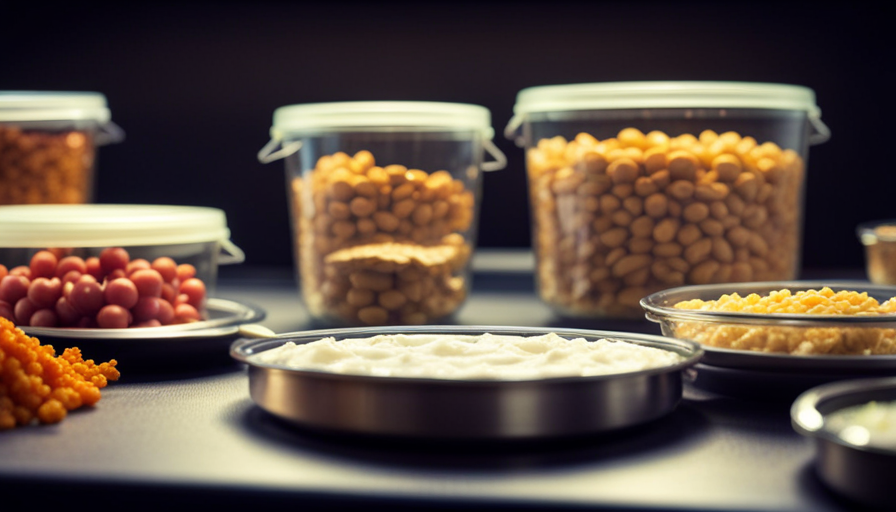
 What is Raw Food?3 weeks ago
What is Raw Food?3 weeks agoHow To Store Raw And Cooked Food Separately
-

 What is Raw Food?3 weeks ago
What is Raw Food?3 weeks agoHow To Prevent Food Poisoning After Eating Raw Chicken
-

 Snacks and Appetizers1 month ago
Snacks and Appetizers1 month agoHealthy and Delicious: Raw Food Snacks and Appetizers for a Nutrient-Packed Diet
-

 What is Raw Food?2 weeks ago
What is Raw Food?2 weeks agoHow To Get Rid Of Raw Onion Taste In Food
-

 Benefits of Raw Food6 days ago
Benefits of Raw Food6 days agoMy Boxer Needs Glucosamine, What Can I Add To Raw Food Diet?
-

 What is Raw Food?3 weeks ago
What is Raw Food?3 weeks agoHow To Soak Dates Raw Food
-
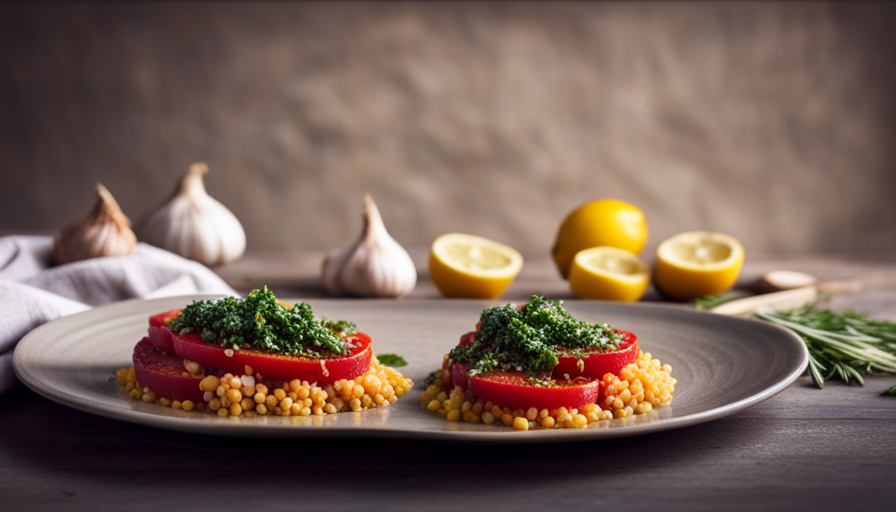
 What is Raw Food?2 weeks ago
What is Raw Food?2 weeks agoHow To Get Rid Of Raw Garlic Taste In Food
